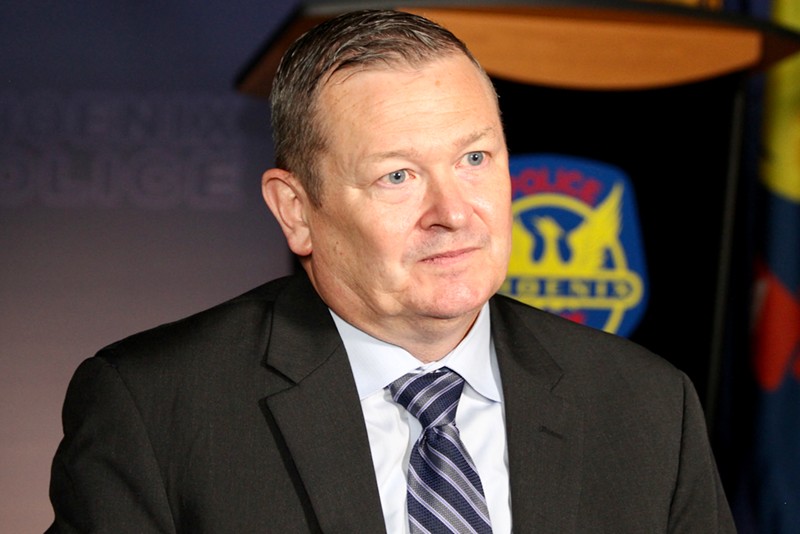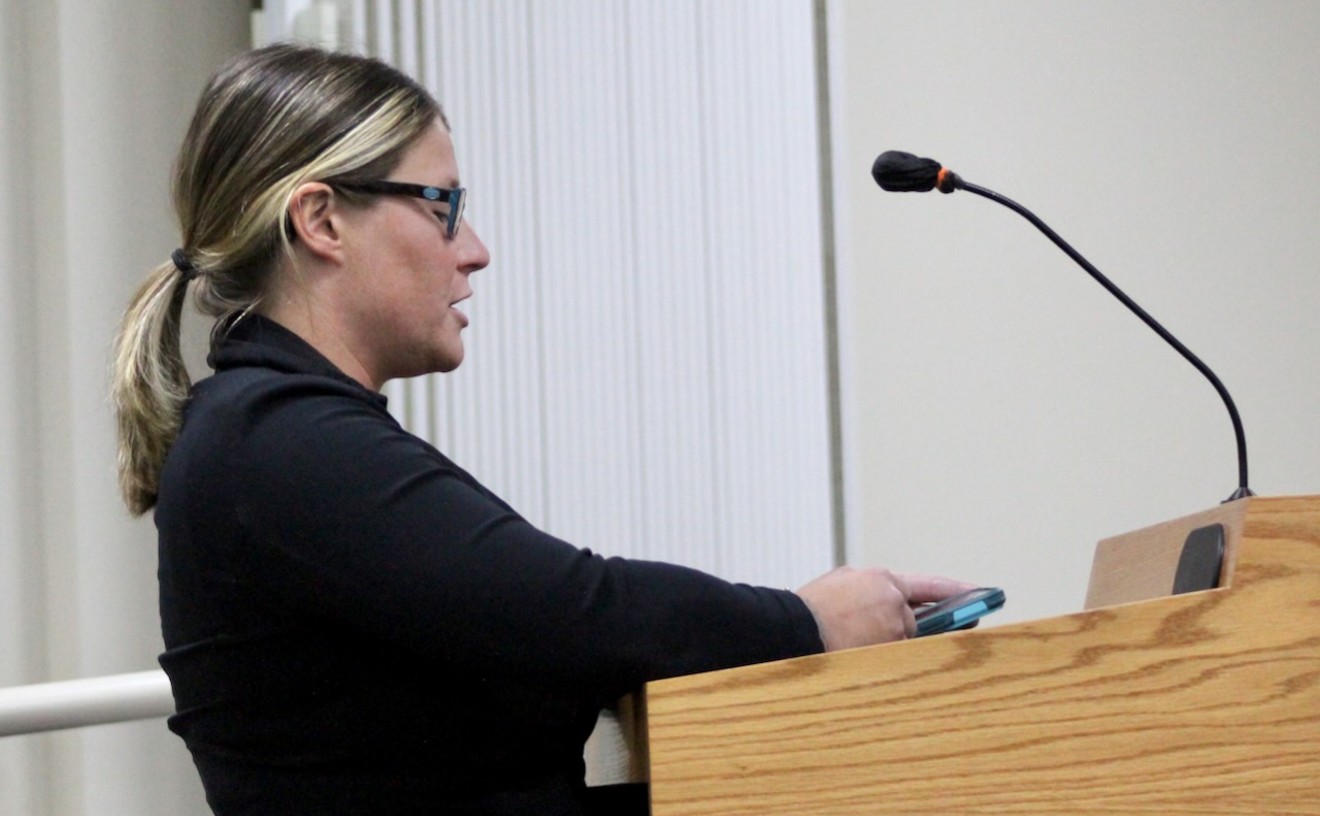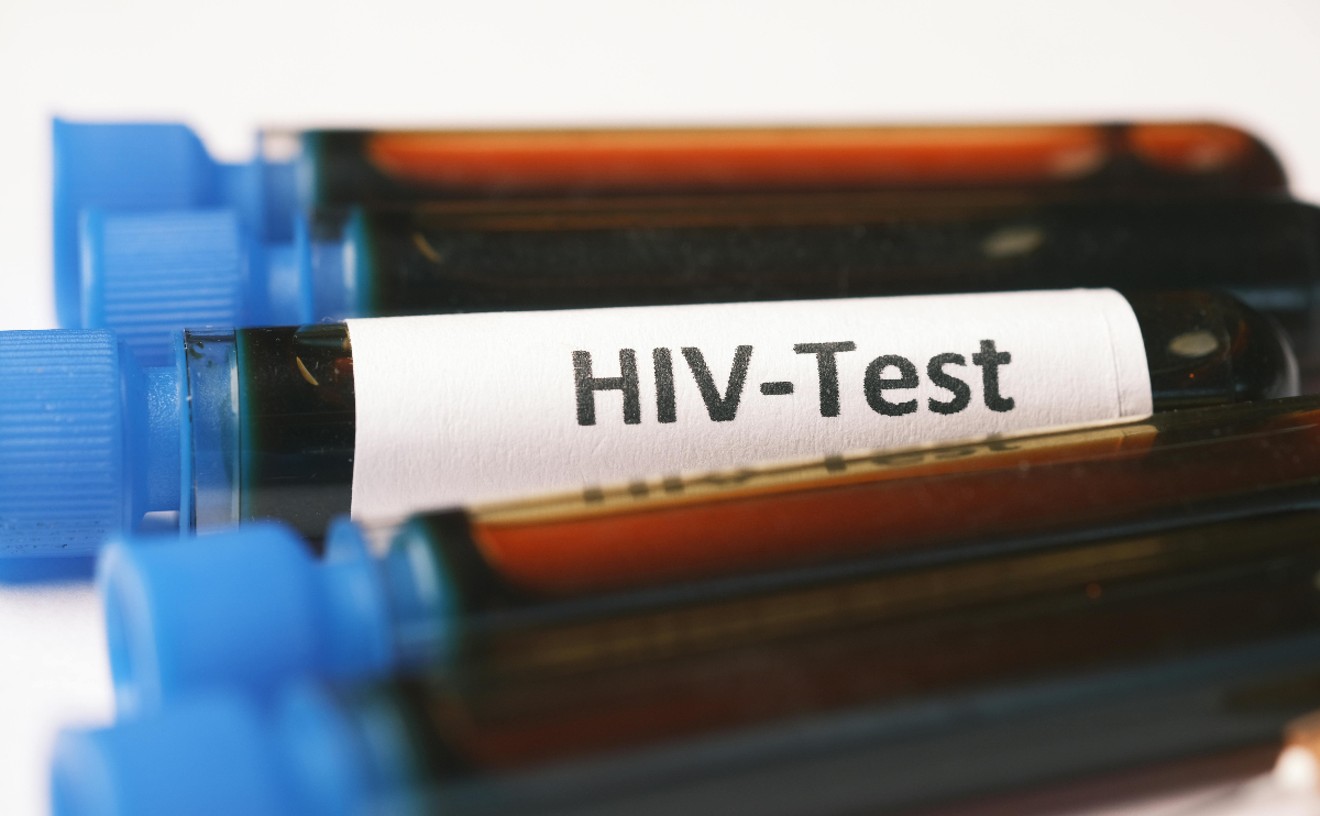The Phoenix City Council voted unanimously on Wednesday to extend the contract of police Chief Michael Sullivan, who will stay in the position until August 2025. Over the next year, city officials will search for a permanent replacement to lead the department starting in September 2025.
“(I) want to thank Chief Sullivan for his continued leadership in a very complicated time,” Mayor Kate Gallego said just before the council voted.
Sullivan’s new deal includes a starting salary of $232,000 along with other benefits. That's the same salary in Sullivan's original contract, which he signed in 2022. With the addition of overtime and other non-salary compensation, Sullivan actually earned $243,800 last year, according to city compensation data.
The decision to keep Sullivan atop the department comes just after the U.S. Department of Justice released a 126-page report on the pattern of severe civil rights violations committed by the city’s cops.
The long-awaited findings were released on June 13, nearly three years after the Justice Department began its investigation of unconstitutional policing in Phoenix. It found plenty of damning violations, including frequent discrimination against people of color, the use of excessive and unnecessarily deadly force, and arrests of unhoused people without cause.
Additionally, the DOJ found that the police department fails to accept and thoroughly investigate complaints of officer misconduct and does not adequately discipline offers who engage in misconduct. The department also has poor policies and deficient training that the DOJ found contributes to its systemic constitutional violations.
“We are prepared to do the hard work to address these reforms because the people of Phoenix deserve fair, nondiscriminatory and constitutional policing,” said Assistant U.S. Attorney Kristen Clarke, who leads the Department of Justice’s Civil Rights Division.
The DOJ report mostly covered incidents between 2016 and 2022, a span that includes only the first few months of Sullivan’s tenure. The city hired him as interim chief in September 2022 after its previous chief, Jeri Williams, retired amid scandal. Before that, Sullivan worked for the Baltimore Police Department — another law enforcement agency that faced a federal investigation and was pushed to reform its force.
In 2015, the DOJ found "systemic deficiencies" in Baltimore’s police operation. The city then entered a consent decree, a binding agreement with the federal government to reform the department with the help of independent oversight. Sullivan assisted in making sure the department complied with implementing and achieving reforms.
The DOJ report credited Sullivan with spearheading some needed changes in Phoenix, including revising use-of-force guidelines and improving resources officers can use when responding to mental and behavioral health incidents. However, the report said those reforms were hardly enough to address the department’s systemic failings.
Despite those failings, Phoenix officials have been signaling for months that they would resist signing an agreement for independent oversight of the police department.
In a January letter to the DOJ, the city said it planned to reject signing a consent decree, or an agreement with federal officials to be held accountable and make reforms through independent oversight. In a meeting with reporters in December, Sullivan also said the department could implement reforms more effectively without the oversight of a judge or independent monitor.
But the February 2024 resignation of the head of Phoenix's Office of Accountability and Transparency and the creation of a watered-down civilian review board call into question the city's ability to regulate its own police department — an issue reiterated by Clarke as she introduced the DOJ’s findings.
"This is one instance,” Clarke said, “where we can't count on the police to police themselves.”
Phoenix officials haven’t been quite as strident since the report was released, choosing to highlight recent police reforms while diplomatically expressing a wish to avoid a consent decree. In an interview five days after the report was released, Gallego said the city was taking the report seriously, a sentiment City Manager Jeff Barton repeated in a message to city employees.
On Tuesday, the council met in executive session, which is not open to the public, to discuss the report’s findings. A day later -– at the first public council meeting since the report was released — the subject wasn’t mentioned at all.
[
{
"name": "Air - MediumRectangle - Inline Content - Mobile Display Size",
"component": "18478561",
"insertPoint": "2",
"requiredCountToDisplay": "2"
},{
"name": "Editor Picks",
"component": "16759093",
"insertPoint": "4",
"requiredCountToDisplay": "1"
},{
"name": "Inline Links",
"component": "17980324",
"insertPoint": "8th",
"startingPoint": 8,
"requiredCountToDisplay": "7",
"maxInsertions": 25
},{
"name": "Air - MediumRectangle - Combo - Inline Content",
"component": "16759092",
"insertPoint": "8th",
"startingPoint": 8,
"requiredCountToDisplay": "7",
"maxInsertions": 25
},{
"name": "Inline Links",
"component": "17980324",
"insertPoint": "8th",
"startingPoint": 12,
"requiredCountToDisplay": "11",
"maxInsertions": 24
},{
"name": "Air - Leaderboard Tower - Combo - Inline Content",
"component": "16759094",
"insertPoint": "8th",
"startingPoint": 12,
"requiredCountToDisplay": "11",
"maxInsertions": 24
}
]












